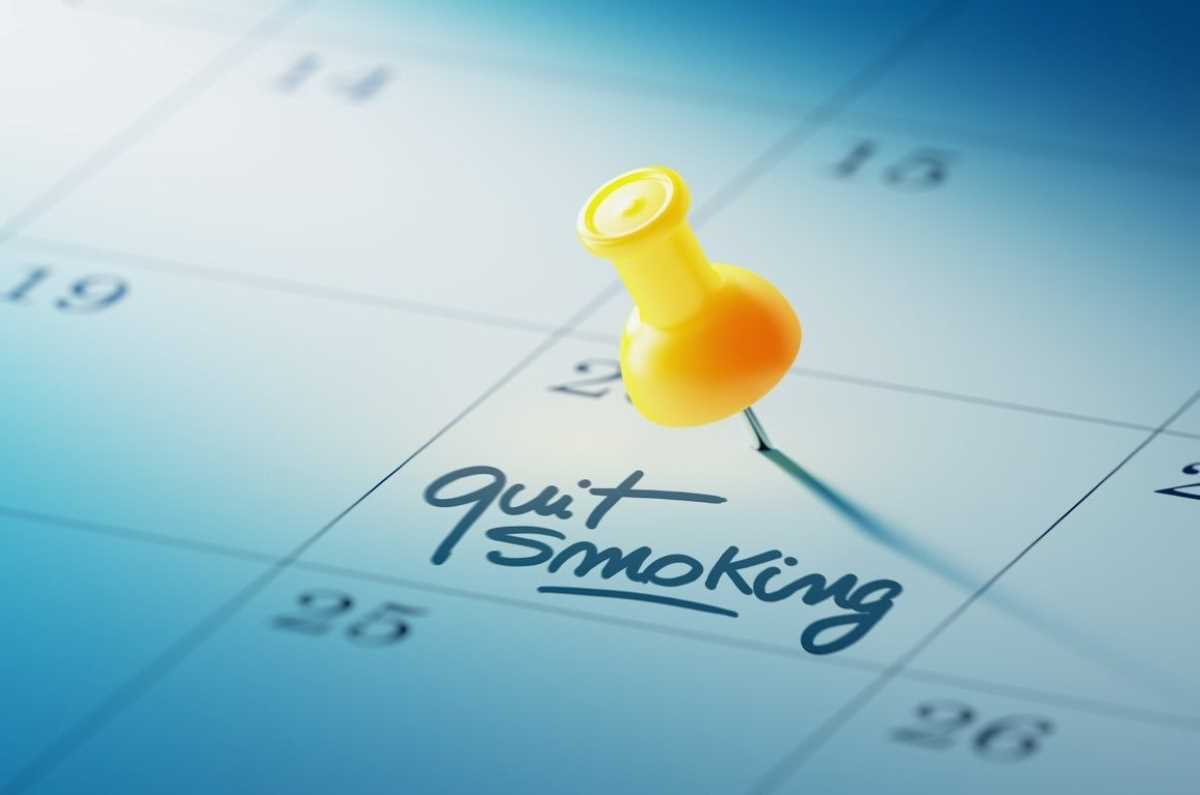You can quit for good
December 17, 2020 by Lisa Bywaters

Smoking is bad for your health. There’s no denying it. And as we come to the close of a very stressful year, and we start thinking about our resolutions for the New Year, quitting smoking is a good choice.
As well as the obvious links to cancer and lung disease, smoking’s linked to back pain, neck pain, rheumatoid arthritis and osteoporosis. Smoking also causes fatigue and slower healing, which can make your pain worse. And it can make some of your medications less effective.
So quitting smoking has many health benefits. Within weeks of quitting you’ll breathe easier and have more energy, making it easier to exercise and do your day-to-day activities.
Quitting can be really tough, and it may take several attempts, but you can do it. And it’s so worth it.
Tips for quitting
Get help. You don’t have to do it on your own. There are lots of people and organisations who can help you. Talk to your doctor, contact Quitline (137 848) or ICanQuit and get your family involved.
Decide on a strategy. Are you going to use medication, nicotine replacement, coaching or a combination of strategies? Or are you going to go cold turkey? There’s no ‘one size fit all’ strategy for quitting. Learn more about the many different ways you can quit smoking.
Choose your day to quit. Mark it in your diary, put a big note on your fridge and get ready. Toss out any cigarettes you have in the house, car, office or garage. Fill your pantry with healthy snacks and get your walking shoes ready.
Talk to your family and friends. Let them know what you’re doing and why, and ask for their support.
Write down the reasons you want to quit and put this list in prominent places to encourage and motivate you.
Be prepared for withdrawal. It can make you tired, cranky, anxious, hungry and interfere with your sleep and concentration. These symptoms will eventually go away over the next 2-4 weeks, but you should be prepared for them.
Know your triggers. Each smoker will have different triggers, like smoking when you’re stressed or unhappy, or after you’ve eaten, when you’re drinking with friends, or watching TV. So it’s important to know your triggers and have some strategies in place for when you’re hit with the urge to smoke. Find out about triggers and the different things you can do to manage them.
Calculate the cost. Smoking is really expensive! Use this calculator from ICanQuit to work out just how much money you’ll save if you quit smoking. It’s sure to be a motivator!
Manage your weight. Some people find that they gain a little weight when they quit smoking. This can be for many reasons – eating becomes a substitute for smoking, food tastes better so you eat more, eating becomes a new way to manage stress or anxiety. But knowing this may be a problem means you can be prepared. Make sure you have healthy snacks on hand, watch your portion sizes, make sure you get plenty of exercise and learn new ways to manage your stress.
Get some exercise. It’s vital for overall good health, and it’s a great way to manage the pain and symptoms of your musculoskeletal condition. And how much easier is it when you’re not smoking?
Use some of the money you save and treat yourself to something special. You’ve worked hard – spoil yourself with a massage, visit a favourite restaurant, buy that outfit or pair of shoes you’ve had your eye on. Treat yo’ self!
Be kind. Quitting can be difficult and you may have a slip-up or two. It’s not the end of the world, or the end of quitting. You can get back on track. So be kind to yourself.
For more tips to help you stick with quitting, check out the great info on the Quitline and ICanQuit websites.
Quitting smoking is hard – but there are so many rewards.
Take your first step today – talk to your doctor, get your family and friends on board to support you, and contact Quitline on 13 78 48. You’ll feel so much better.
Call our Help Line
If you have questions about things like managing your pain, your musculoskeletal condition, treatment options, COVID-19, telehealth, or accessing services be sure to call our nurses. They’re available weekdays between 9am-5pm on 1800 263 265; email (helpline@msk.org.au) or via Messenger.
More to explore
- ICanQuit
NSW Government - Quitline
Quit Victoria - Smoking and tobacco
Australian Government Department of Health - Smokefree.gov
US Department of Health and Human Services








